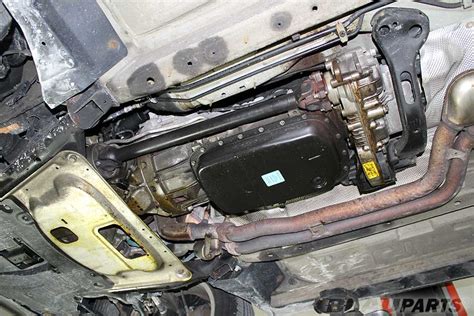Find Your BMW Transmission Fluid Type in Seconds: A Definitive Guide
Knowing your BMW's transmission fluid type is crucial for proper maintenance and preventing costly repairs. Incorrect fluid can damage your transmission, leading to significant expenses down the line. This guide will show you how to identify your BMW's transmission fluid type quickly and accurately, eliminating guesswork and ensuring your car stays in top condition.
Why is Knowing Your BMW Transmission Fluid Type Important?
Using the wrong transmission fluid can have serious consequences for your BMW's automatic transmission. Different fluids have varying viscosities, friction modifiers, and additives designed for specific transmission types. Using an incompatible fluid can lead to:
- Slipping or delayed shifting: The transmission may not shift smoothly, resulting in jerky movements and poor performance.
- Internal damage: Incorrect fluid can cause friction and wear on internal components, eventually leading to transmission failure.
- Reduced lifespan: Using the wrong fluid accelerates wear and tear, shortening the lifespan of your transmission.
How to Find Your BMW Transmission Fluid Type: The Quickest Methods
There are several ways to determine the correct transmission fluid for your BMW, ranging from the quickest to more involved methods.
1. Check Your Owner's Manual: The Easiest Method
The most straightforward method is to consult your owner's manual. This document contains all the specifications for your specific BMW model and year, including the recommended transmission fluid type. Look for sections on fluids, lubricants, or transmission maintenance. The manual will specify the exact fluid type and its corresponding BMW part number.
2. Decoding Your BMW's VIN: A Reliable Alternative
Your Vehicle Identification Number (VIN) contains a wealth of information about your car. You can use the VIN to look up your vehicle's specifications online through various sources, including:
- BMW's official website: BMW's website may offer a VIN decoder that provides detailed information about your car, including the recommended transmission fluid. However, navigating this system may require some technical knowledge.
- Third-party VIN decoders: Numerous online services provide VIN decoding, often for a small fee. Make sure to use a reputable service to avoid inaccurate information. Note: Using these services only provides general information; you should always double-check with your owner's manual or a BMW specialist.
3. Inspect the Transmission Fluid Dipstick (If Applicable): A Less Reliable Method
Some older BMW models have transmission fluid dipsticks. If your car has one, carefully check the dipstick for markings or a code that indicates the fluid type. Caution: This method is less reliable as the dipstick may not always clearly indicate the specific fluid. Consider this method only as a last resort, and always cross-reference with the owner's manual or VIN information.
What if I Can't Find the Information?
If you've exhausted all the above methods and still can't find your BMW's transmission fluid type, the best course of action is to:
- Contact a BMW dealership: A BMW dealership service department has access to complete service records and can definitively identify your transmission fluid type using your VIN.
- Consult a qualified mechanic: A trusted independent mechanic specializing in BMW vehicles can also help determine the correct fluid.
Never attempt to guess the transmission fluid type. Using the wrong fluid can cause irreparable damage to your transmission.
Frequently Asked Questions (FAQs)
How often should I change my BMW transmission fluid?
Transmission fluid change intervals vary depending on your BMW model, driving habits, and climate. Consult your owner's manual for the recommended service intervals. Generally, it's recommended to have it checked regularly and changed every 50,000 to 100,000 miles or as suggested by your BMW dealership.
What are the signs of needing a transmission fluid change?
Signs that your BMW transmission fluid may need changing include: slipping gears, delayed shifting, rough shifting, whining noises from the transmission, burning smell from the transmission area, and low transmission fluid level (indicated by a dipstick if applicable).
Can I change my BMW transmission fluid myself?
While you can technically change the fluid yourself, it's a complex procedure requiring specialized tools and knowledge. It's generally recommended to have a professional mechanic perform this task.
By following these steps, you can quickly and accurately identify your BMW's transmission fluid type, ensuring the longevity and smooth operation of your vehicle's transmission system. Remember, proactive maintenance is key to preventing costly repairs and keeping your BMW running smoothly for years to come.

